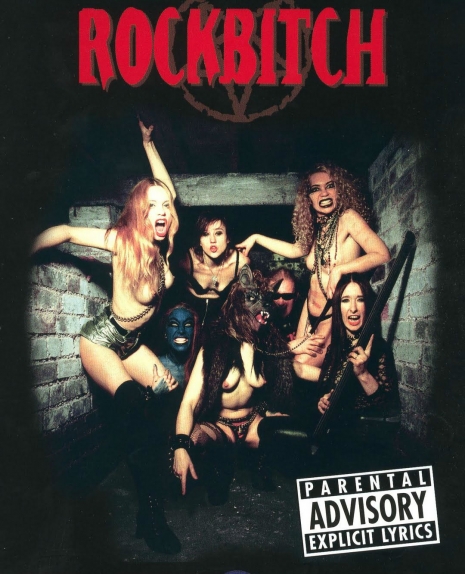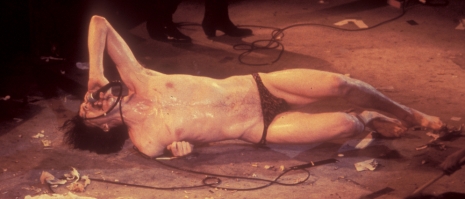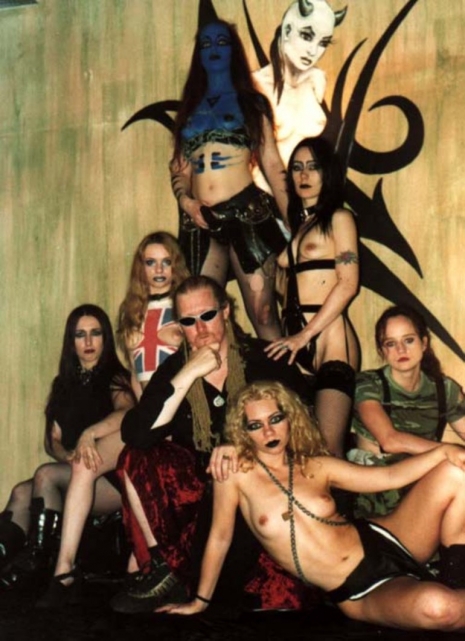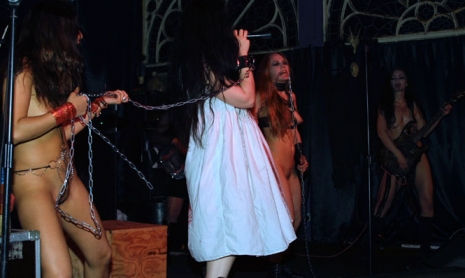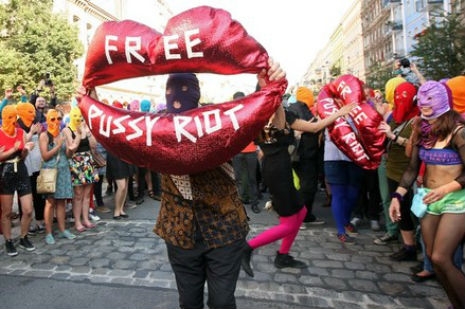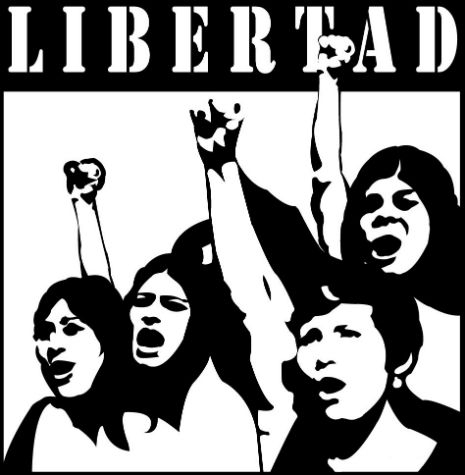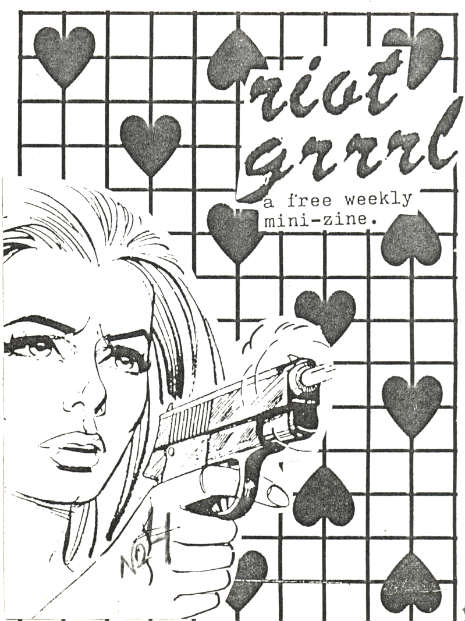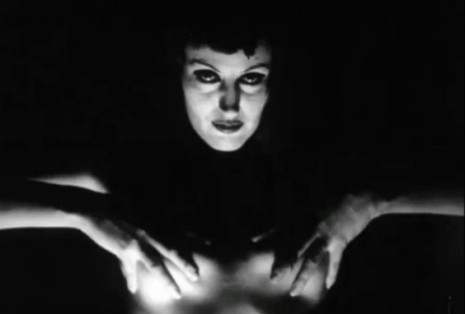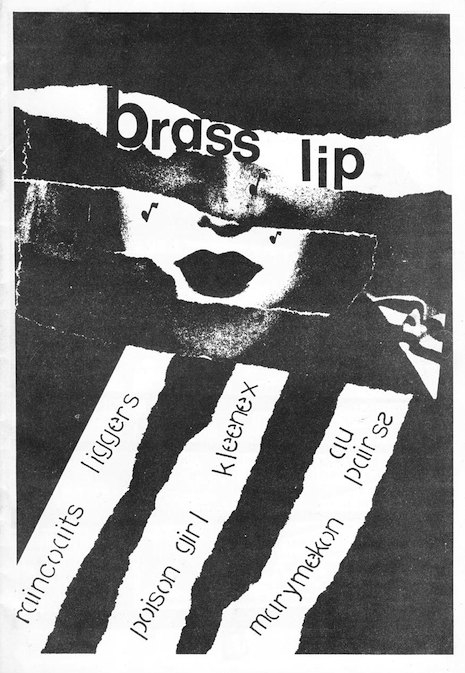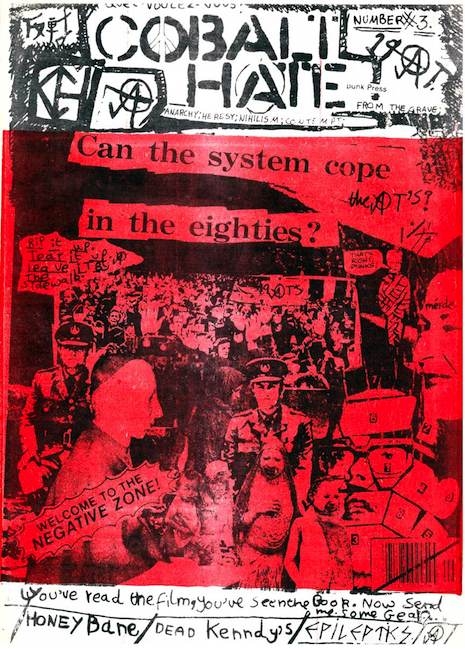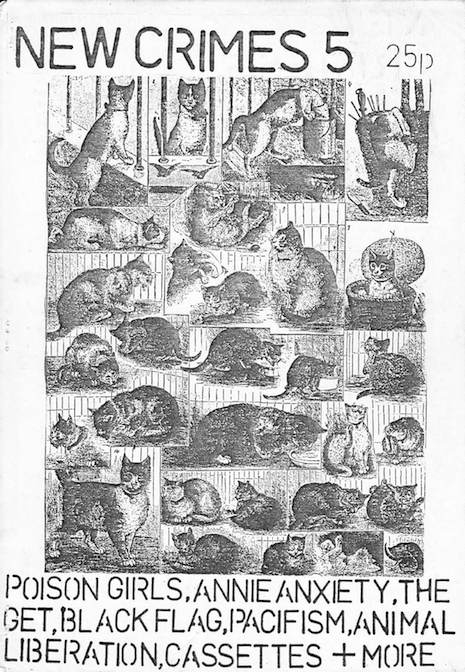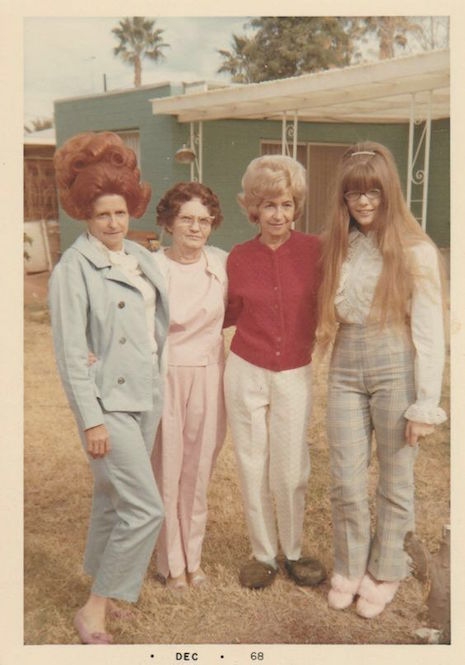
This is one of my all-time favorite photographs. I have no idea who took it, where it was taken, dunno who the hell these ladies are. But goddamn. I adore them all.
I’ve seen tons of people look at this photo and mock these women for unconventional hairstyles, awkward facial expressions, and what is likely a highly Texan aesthetic (my geographic guess). Fine, laugh. But there’s something so charming, so uniquely pleasurable about the way these women (probably family) are enjoying each other’s company, standing out in that ratty backyard. That yard of dead grass laid out in front of a patio overhang that seems to be one short storm away from crashing to the ground. And our youngest girl—the one with the flowing hippie hair and glasses—she’s wearing pink slippers! There’s this weird strength reflected here in this cadre of creatively-coiffed chicks. I bet they made great cocktails and killer cookies.
Women’s hair and beauty dynamics are intensely personal. Since the beginning of time women have invested spaces like beauty parlors/salons with the power of the personal in order to have a location to freely access aesthetic self-care practices. Generally, we do this for our own benefit, to impress someone else, or both. These spaces have also traditionally served another equally important function: they are community social zones and “safe spaces” for women to gossip, exchange intimacies that they would never do around male friends/family. Beauty parlors have always served a critical function for women.
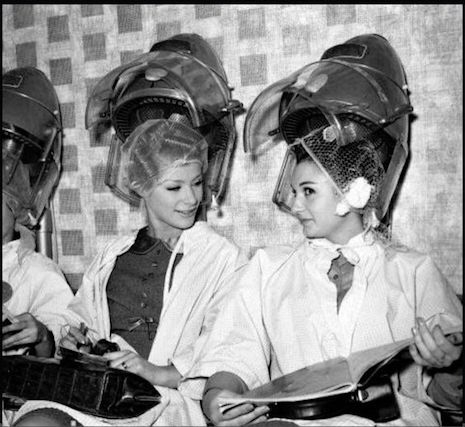
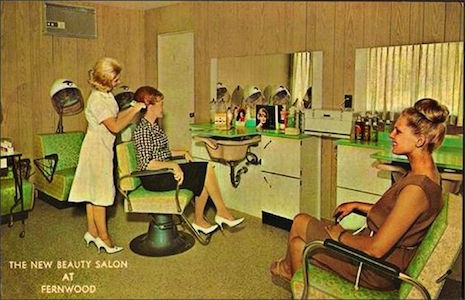
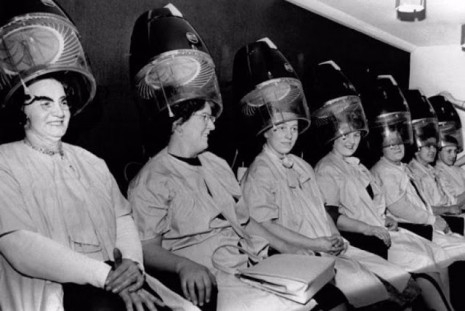

The cosmetology world made huge advances in the 1920s. Thanks to the invention of the hair salon (and hair salon franchise) by Canadian-American business woman Martha Matilda Harper, women’s beauty centers shifted from “home visits” to the communal environment we are now familiar with. Harper sold many of the franchise models to lower income women and ended up profiting greatly as a result. With Harper’s floor-length Rapunzel-like tresses, it was hard not to take hair advice from this marketing genius.
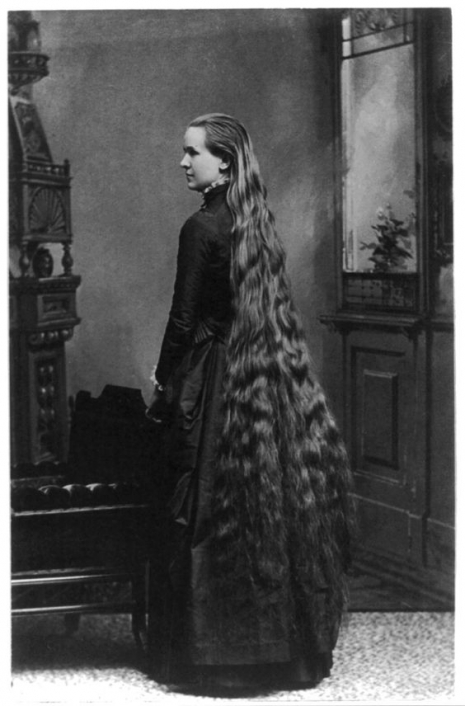
With these advances, there are some unfortunate facts. These sacred communal spaces were structured for Straight White Women and they have never quite lost that flavor, even today. What’s unfortunate (but not surprising) is that there are women of color who helped establish this space and who should be far more famous than they are. Women like Sarah Breedlove Walker aka Madame CJ Walker was born to freed slaves and was an extraordinary businessperson. Employing some of the highest numbers of black women in the United States, Walker developed her own line of beauty products and became one of the first self-made millionaires in the United States.
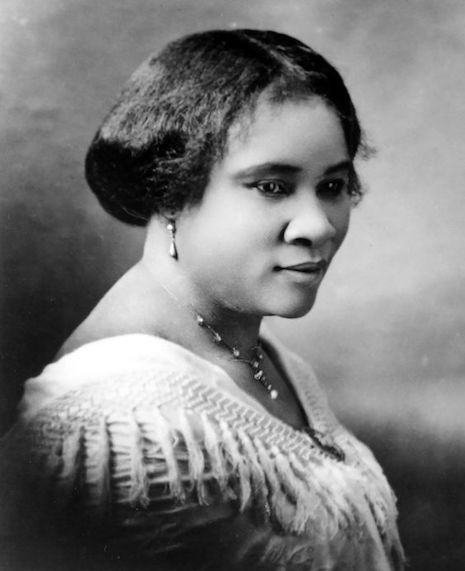

Continues after the jump…






